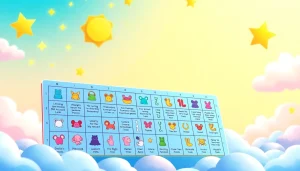Navigating the Complex Emotions of a Relationship Breakup

Understanding the Process of a Relationship Breakup
Breaking up is arguably one of the most emotionally charged events in a person’s life. Whether the relationship was short or long-term, the fallout from a separation can leave deep scars. Understanding the dynamics of relationship breakup can nourish healing and provide insight into recovery and rebuilding oneself. This comprehensive guide delves into the psychological aspects, communication strategies, grief stages, and methods to foster personal growth post-breakup.
Why Breakups Are Difficult
The pain of a breakup often stems from a sense of loss. You’re not just letting go of a person but also the dreams, plans, affirmations, and intimate moments shared together. It feels like losing a part of yourself, adding to the struggle. Studies indicate that breakups can trigger similar brain responses as physical pain, heightening the emotional trauma experienced during this time. Moreover, societal beliefs often dictate how one should feel after a breakup, complicating the emotional response.
Common Emotional Responses to Breakups
After a breakup, people often experience a wide range of emotions, including:
- Sadness: A deep sense of sorrow is a common reaction. You may find yourself grieving over the relationship and what it represented.
- Anger: Whether directed at an ex-partner or oneself for mistakes made, anger is a natural response to perceived betrayal or loss.
- Relief: In some cases, particularly in unhealthy relationships, individuals might feel relief, accompanied by guilt for feeling that way.
- Confusion: Questions about why the relationship ended or whether it could have been saved can lead to anxiety and uncertainty about the future.
- Loneliness: The absence of companionship can lead to deep feelings of isolation as you adjust to being single again.
Stages of Grief in a Relationship Breakup
Grieving the loss of a relationship typically involves several stages closely resembling the stages of grief experienced in other significant losses:
- Denial: The initial reaction is disbelief that the relationship is truly over. This emotional defense mechanism acts as a buffer against shock.
- Anger: Once denial fades, frustration often emerges. You may feel anger towards your ex, yourself, or circumstances surrounding the breakup.
- Bargaining: This might involve negotiating for the future, wishing for a different outcome, or reconsidering past decisions that led to the breakup.
- Depression: Feelings of deep sadness and regret can arise as you begin to process the reality of your loss.
- Acceptance: Finally, acceptance comes when you can acknowledge the breakup, reflect on it constructively, and begin to heal.
Effective Communication During a Relationship Breakup
While the conversation about breaking up can be uncomfortable, addressing it with clarity and care can ease the transition for both parties. Here are some tailored approaches to make the conversation less painful and more meaningful.
How to Approach the Conversation
Choosing the right time and place is crucial. This ensures that both partners can speak frankly without interruptions. It’s advisable to conduct the conversation in a private, neutral location where emotional reactions can be contained. It’s essential to be honest yet tactful, choosing your words to diffuse potential anger or sadness.
What to Say and What to Avoid
Start by expressing your feelings and reasons for the breakup sincerely. You might say something like, “I’ve been feeling that our relationship isn’t serving us as it should, and I think it’s time for us to part ways.” Avoid blaming statements or discussing grievances from the past. Instead of saying, “You always do this,” focus on “I feel…” to frame your feelings without escalating tension.
Handling Reactions After the Talk
Everyone reacts differently; some might cry, while others may get angry or become completely silent. It’s important to stay calm and allow space for the other person’s feelings. After the breakup, you may want to set boundaries around future contact to aid healing, such as taking a break from communication for a set period.
Healing After a Relationship Breakup
Healing is a process that involves both emotional recovery and practical steps to regain your equilibrium.
Self-Care Strategies for Moving On
Prioritizing self-care during the healing process is essential. Here are effective strategies:
- Engage in Activities You Enjoy: Reconnect with hobbies or interests that once brought you joy. This can serve as a comforting distraction.
- Exercise Regularly: Physical activity has been proven to reduce stress and improve mood through the release of endorphins.
- Practice Mindfulness: Techniques such as meditation or journaling can help process emotions and provide clarity about feelings.
- Avoid Substance Abuse: While it might be tempting to numb the pain with alcohol or drugs, this can often worsen emotional pain in the long run.
The Importance of Support Networks
Isolating oneself can often intensify feelings of loneliness and despair. Seeking support from friends, family, or even professionals is crucial. Sometimes it helps to share thoughts with someone who can offer perspective. Support groups or therapy can also provide a safe space to express your feelings and guide you on the path to recovery.
Timeframes for Healing: What to Expect
Healing isn’t a linear process and varies greatly among individuals. It can take weeks, months, or even years to come to terms with a breakup completely. Research indicates that on average, individuals may take about six months to a year to fully recover from a significant relationship loss. Nonetheless, recognizing where you are in the process can help mitigate frustration and encourage patience.
Common Myths About Relationship Breakups
Myths surrounding breakups can often lead to unhealthy coping mechanisms or unrealistic expectations about healing.
Misconceptions That Can Hinder Healing
One prevalent myth is the belief that time alone heals all wounds. While time is a factor, active participation in your healing journey through self-reflection and emotional processing is crucial. Other misconceptions include:
- “You should be over it in a few weeks.”
- “You can’t be friends afterwards.”
- “It’s a sign of weakness to seek help.”
Understanding the Nature of Love and Loss
Accepting that love and loss are intrinsically linked can help dispel harmful myths. Each relationship teaches valuable lessons on love, self-acceptance, and personal growth. Recognizing love’s temporality does not diminish its significance but rather enhances the appreciation of what was shared.
Why It’s Okay to Seek Professional Help
Seeking therapy or counseling post-breakup is not a sign of weakness; rather, it’s an affirmation of the desire to heal and grow. Professional guidance can provide emotional tools, coping strategies, and a neutral perspective that friends and family may not be equipped to offer.
Lessons and Growth Post-Relationship Breakup
Relationship breakups, while painful, can serve as pivotal moments of self-discovery and growth.
Reflecting on What Went Wrong
Using the breakup as a reflective tool can uncover patterns in your behavior or relationship choices that may need addressing. Journaling both your feelings and your analysis of the relationship can foster understanding and growth.
Using Breakups as a Catalyst for Personal Growth
Revisiting your personal values and goals in the aftermath of a breakup can help recalibrate your path. This time can be utilized to pursue personal interests, develop new skills, and reinforce self-love. Engaging in personal development activities can cultivate self-awareness and build resilience.
Preparing for Future Relationships After a Breakup
When you’re ready to explore new relationships, ensure you’re doing so from a place of emotional health. Understand your needs and deal with past traumas to prevent them from impacting future partnerships. Communication skills, self-awareness, and a solid support system are crucial for nurturing future relationships.
In conclusion, navigating the path of a relationship breakup can be a profound journey filled with emotional turbulence. However, with understanding, effective communication, self-care, and support, it is entirely possible to heal and emerge stronger, wiser, and ready for new beginnings.







